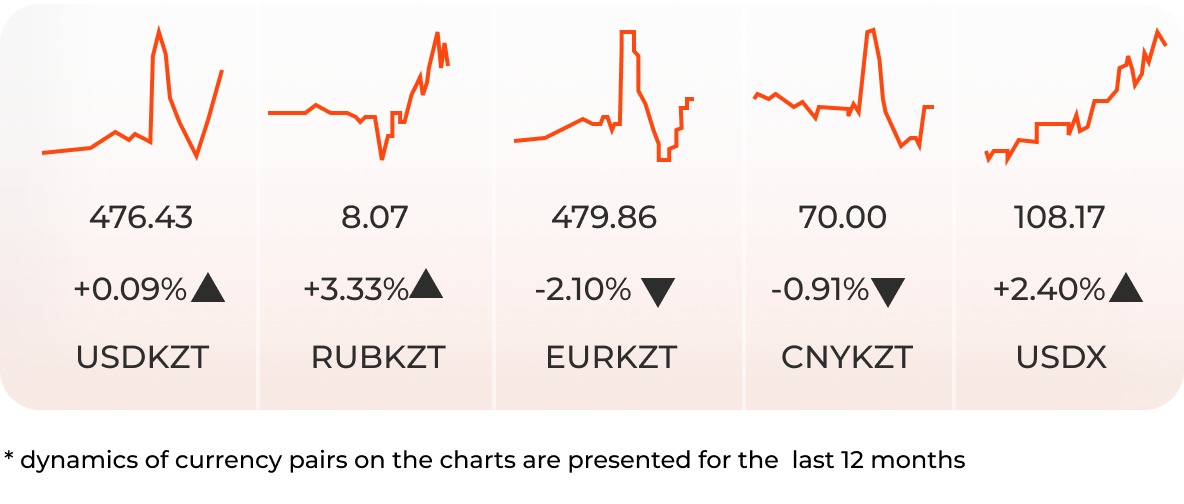
As well as last week, there were no strong changes in the tenge exchange rate against the dollar. By the end of this week, the exchange rate was 476.43 tenge per dollar. Tenge weakened against the Russian currency to 8.07 tenge per ruble. At the same time, the strengthening occurred against the yuan by 0.91%. Since the beginning of August, the national currency has strengthened against the dollar by 0.14%, and has weakened by 10.34% since the beginning of the year.
The weekly volatility of tenge against the dollar was 0.1%, against the ruble – 1.6%, which is respectively 0.1 p.p. less and 0.8 p.p. more than last week.
The USDKZT pair trading volume decreased by 23.06% over the past week compared to the previous one (a decrease of 17.17% compared to the average weekly trading volume in 2022) and amounted to 482.49 million dollars.
The Tenge Index
During the week under review, the Tenge Index (KZTX JA) strengthened by 0.3% and amounted to 78.7 points. Since the beginning of the year, the dynamics of the Index indicate the continued loss of the national currency purchasing power relative to the currencies selected for its calculation (weakening by 13.3%).
According to the Index, the tenge strengthening position occurred despite a simultaneous increase in the Dollar Index (strengthening by 2.4% to the level of 108.17 points) and a decrease in oil prices (a decrease of 1.5% over the week). Thus, the current exchange rate of the national currency is more influenced by the expectations of participants in the domestic foreign exchange market, the supply and demand ratio in the foreign exchange market and other fundamental internal factors than the external market conditions.
Jusan Analytics Opinion
The growing concerns about aggressive monetary tightening by the world’s leading economies and the global economic prospects are putting significant pressure on the currencies of developing countries and must lead to an increase in their volatility. Therefore, the continued tenge strengthening with a simultaneous decrease in its range of fluctuations relative to other foreign currencies raises questions.
High prices for “black gold” and an increase in Kazakhstan’s oil production volume led to increase in currency proceedings for the country, which favourably affected the tenge exchange rate and added optimism to the foreign exchange expectations of the market participants. Thus, contrary to the dynamics of other factors, each big tax week will impact the tenge strengthening. Such shocks bring in uncertainty into the foreign exchange market, increasing its inefficiency.
Due to the upcoming tax week, we expect some strengthening of the national currency to 462-467 tenge per dollar, and then stabilization of the exchange rate at the level of 470 tenge in the short time. And in long term, we expect the exchange rate at the level of 472-477 tenge per dollar in case of no significant shocks from oil under the influence of the inflationary component at a zero real rate, as well as pressure from the US currency.
Read more in the paper

